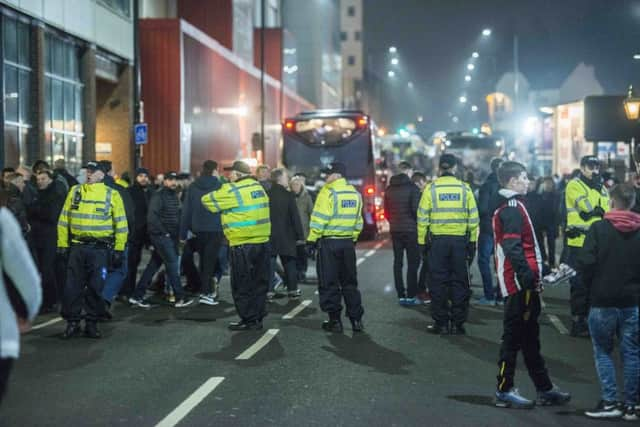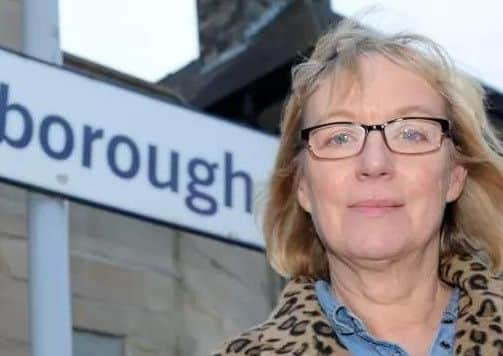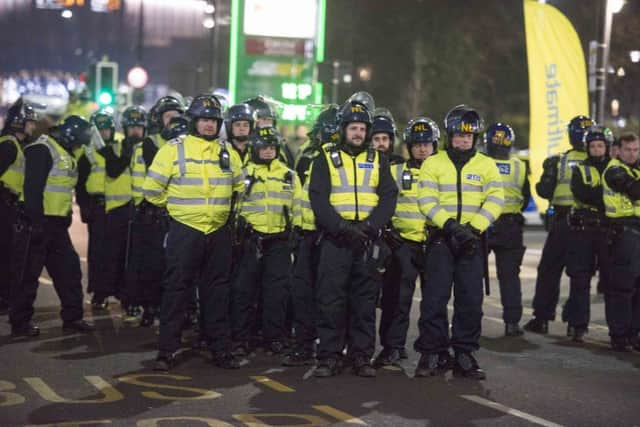Tax on football TV rights could foot the bill for policing matches - Gill Furniss


Despite Sheffield Wednesday’s extended stay in the second tier of English football – something that I am sure will end soon – South Yorkshire Police incurs significant match day costs.
Advertisement
Hide AdAdvertisement
Hide AdAccording to the BBC, the Steel City derby between Sheffield Wednesday and Sheffield United in September 2017 was the country’s most expensive match to police that year, costing over £200,000.


Figures from South Yorkshire Police, using a recent improved methodology for calculating match day costs, put the cost of this April’s Steel City derby at Hillsborough at £203,000. That is against a backdrop of unprecedented cuts.
The Tories’ record on policing is one of failure and broken promises. Over 21,000 police officers and 7,000 community support officers have been axed since 2010.
Sadly, that means competing and conflicting demands on those vital, yet limited, resources. Knife crime continues to rise, as do other forms of violent crime. Alongside large sporting events such as football games, the police are struggling to keep pace with the scale of incidents to be responded to.
Advertisement
Hide AdAdvertisement
Hide AdIn a sense, this debate is regrettable, in that if the Government had not abandoned our police forces, we might not be in the position of asking clubs to help foot the bill. However, given the overstretched nature of policing, we are where we are.


Professional football clubs rely heavily on the support of police to ensure football matches are safe for fans. Police officers do not just provide safety and reassurance within the bounds of a stadium, but have essential duties in preventing disorder around football grounds before and after matches.
Three factors threaten this. First, police forces are under the biggest strain they have faced in modern times. The number of officers available to cover matches is lower than it was, which unfortunately means that police officers must be taken away from neighbourhoods to support match day policing.
Secondly, disorder at football matches is rising. The figures presented to me by the UK football policing unit are stark: disorder has risen, with nearly 38 per cent of professional matches reporting some form of violence or disorder incident during the 2017-18 season, compared with 25 per cent of matches during 2013-14. I have seen police footage of recent disorder at matches, some of which is truly shocking.
Advertisement
Hide AdAdvertisement
Hide AdThe third problem facing the police is that they are able to recover only a small proportion of the money they spend on policing. Mark Roberts, the football policing lead for the National Police Chiefs’ Council, has put the cost of policing professional football matches in England and Wales at over £48m a year, of which police are able to claim back only around £5.5m from clubs. Why?
The question of who pays for football policing is complicated, and has been in dispute for many years. The argument chiefly centres on the cost of policing outside stadiums, whether on closed streets immediately surrounding them or routes to and from the match. Despite the huge wealth that many football clubs have, they consistently challenge the extent to which they should refund the police for their expenditure outside the ground itself.
Currently, the legal position on the extent to which police can charge clubs for match costs is based on an October 2017 Court of Appeal ruling that went in favour of Ipswich Town and against Suffolk Police.
What might be done to create a better situation? We need to be aware of those clubs that may suffer incidents of disorder but do not have the financial resources of the top leagues. Full cost recovery could be damaging for many local league clubs, which leads me to support a suggestion by the police that a levy on football TV rights might be the fairest way for police to receive additional funding. The Premier League’s total TV rights are now expected to exceed £3bn a year. To illustrate, a one per cent levy could recover enough money to cover a substantial portion of football policing costs and relieve clubs and the police of expensive and time-consuming arguments about the extent of payments.
Advertisement
Hide AdAdvertisement
Hide AdIn public policy today, there is often cross-party support for policies that ensure the costs of dealing with a problem for society are borne by the organisation responsible for the activity causing the issue. We see that with recycling levies for packaging firms and carbon taxes for power companies.
Taxes pay for the benefits we all share as a society; football clubs should bear a more representative fraction of the burden for the costs incurred in keeping fans safe.
Gill Furniss is the Labour MP for Sheffield Brightside and Hillsborough. She spoke in a Parliamentary debate on policing at football matches – this is an edited version.